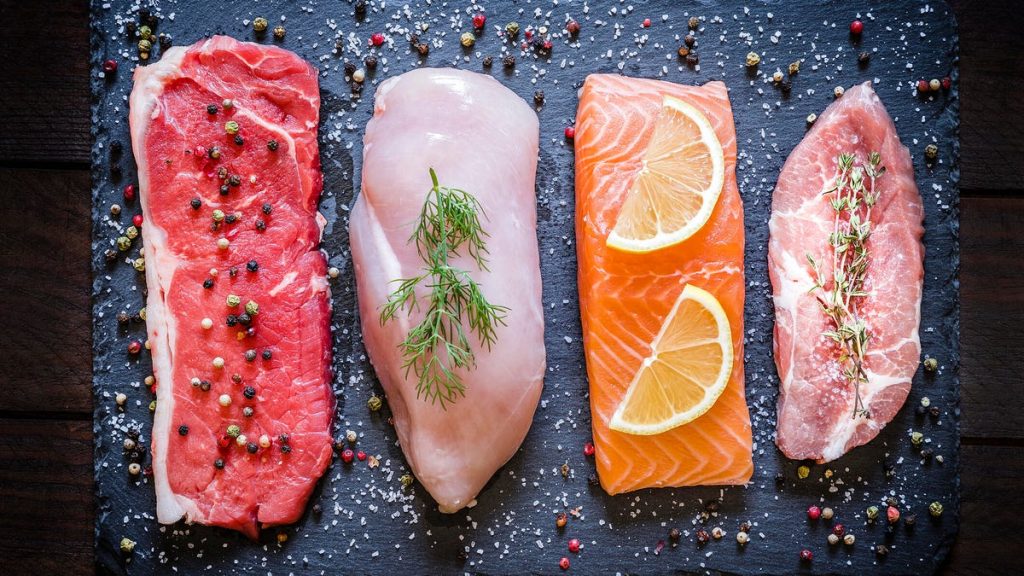Protein is essential for our health, with the average adult needing about 0.8 to 1 gram of protein per kilogram of body weight. Active individuals, older adults, and those at risk of muscle loss may require more protein. Various strategies can help increase protein intake, such as ritualizing protein consumption, eating protein first during meals, adding nuts to dishes, choosing lean meats, opting for quinoa or brown rice instead of white rice, incorporating beans into meals, and swapping white bread for whole-grain bread. These small changes can help boost protein consumption and support overall health.
Ritualizing protein consumption can help make it a consistent part of your daily routine. For example, including a protein shake with breakfast or post-workout can add to your daily intake. Eating protein first during meals can ensure you consume an adequate amount before getting too full. Adding chopped nuts to meals like salads, oatmeal, and stir-fries can provide a protein boost along with healthy fats, fiber, vitamins, and minerals. Choosing leaner meats and opting for brown rice or quinoa over white rice can also help increase protein intake.
Leaner meats like top sirloin steak, top-round roast, or chicken breast contain more protein per portion and fewer calories than fattier meats. Quinoa and brown rice have higher protein content than white rice and can be used as substitutes in various dishes. Beans are another overlooked protein source that can easily be added to salads, pastas, tacos, and more. They offer a good source of fiber and nutrients in addition to protein. Whole-grain bread, such as Dave’s Killer Bread 21 Whole Seeds and Grains, contains more protein than white bread due to retaining all parts of the grain.
Incorporating these strategies into your daily eating habits can help increase your protein intake and support overall health. Whether you are physically active, older, or looking to maintain a healthy weight, consuming an adequate amount of protein is essential. By making small changes like ritualizing protein consumption, choosing lean proteins, and opting for nutrient-dense alternatives, you can ensure you meet your daily protein needs and improve your overall well-being. Remember that protein plays a vital role in maintaining muscle mass, supporting weight management, and promoting overall health, so it’s important to prioritize it in your diet.


